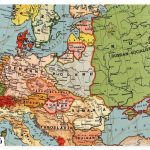The terms “countries with blood law” and “countries with soil law” belong to two types of systems that are used to determine a person’s citizenship in that country, which we will discuss below.
blood law
Blood law (Jus Sanguinis): means “blood right”. In this system, citizenship is transferred to people whose parents or ancestors are citizens or former citizens of the respective country. In other words, if you are the child of a citizen or former citizen of a country that operates on the principle of blood law, he or she has the right to the same citizenship. This system is usually common in countries that value their cultural and ethnic history. Many countries, including Germany, France and Italy, use the principle of blood law to determine citizenship.
Below is a list of countries with blood laws:
Germany, Italy, Japan, Ireland, South Korea, USA, Spain, France, Poland, Greece
soil law
Jus Soli: This principle means “the right of the soil” and refers to the determination of citizenship based on the place of birth. In this system, citizenship is determined based on a person’s place of birth, in other words, if a person is born within the borders of a certain country, he has the right to become a citizen of that country, even if his parents are not citizens of that country. This system is usually common in countries with a diverse society and the importance of interaction between cultures. Many countries, especially in North America, use the principle of the law of soil to determine citizenship, but a few also recognize and adhere to the principle of the law of blood.
Below is a list of countries with blood laws:
Canada, Australia, Brazil, Mexico, Argentina, Albania, Cuba, India, Jamaica, Türkiye
Permanent residency: permanent residence in Sweden and self-employment
Where are the most popular birth destinations to get permanent residence and passport?
The most popular birthing destinations for obtaining permanent residence and passport are usually in countries with advanced health systems and quality medical services, as well as relatively easier immigration conditions. Some of the most popular births for immigrants include:
- Canada: Canada is a popular birthing destination due to its well-developed and efficient health system, as well as less stringent immigration requirements for immigrants and pregnant women.
- United States of America: The United States is one of the most popular destinations for immigrants to give birth, with state-of-the-art hospitals and health centers and excellent medical infrastructure.
- England: With its high-quality public health system and variety of medical services, England has always been one of the favorite destinations for immigrants to give birth.
- Australia: Australia is also one of the popular birth destinations for immigrants with quality health services and suitable immigration conditions.
Each of these countries has different requirements and regulations for immigration and childbirth, so careful research and consultation with an experienced immigration attorney or advisor is strongly recommended before choosing a destination.
final word
The law of soil and the law of blood show two different approaches to determining citizenship and citizenship of people in countries. According to the law of the land, every person who is born within the borders of a country has the right to be a citizen of that country. This concept means that the citizenship of children born in a country is not related to the citizenship of their parents and is determined based on their place of birth. On the other hand, in blood law, the nationality of children is determined based on the nationality of their parents, regardless of their place of birth. Both approaches have their advantages and disadvantages and are chosen in different countries, depending on the geographical, economic and social conditions. In general, the law of soil can contribute to cultural and social diversity, while the law of blood may strengthen community strength and family ties.
More articles in Caspian Migration Magazine:
Obtaining permanent residence in Ecuador
Canadian permanent residence through investment
RCO NEWS
















